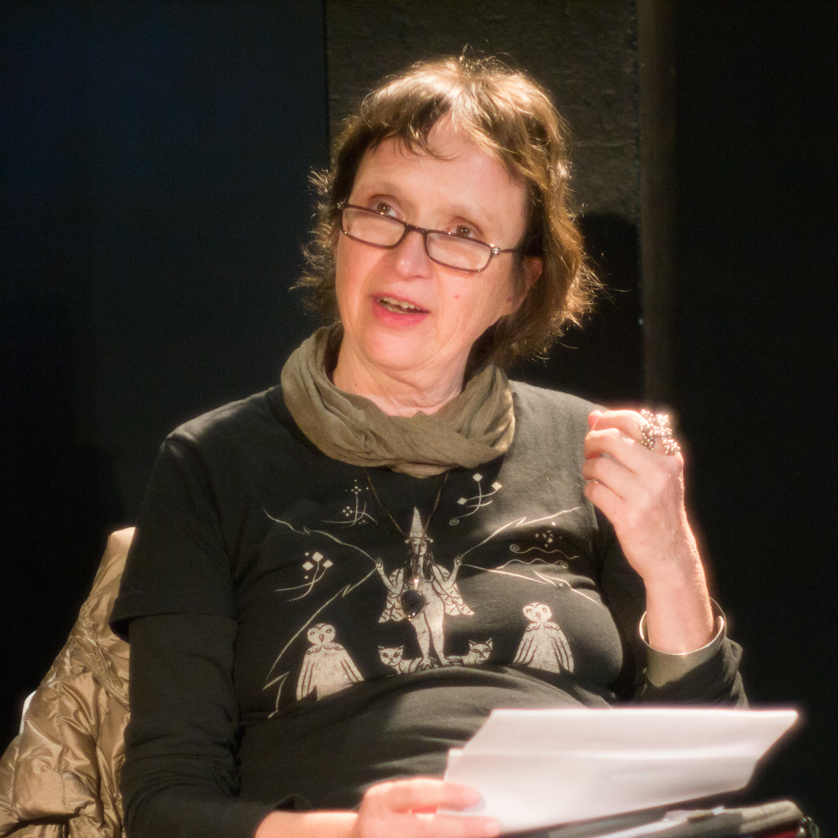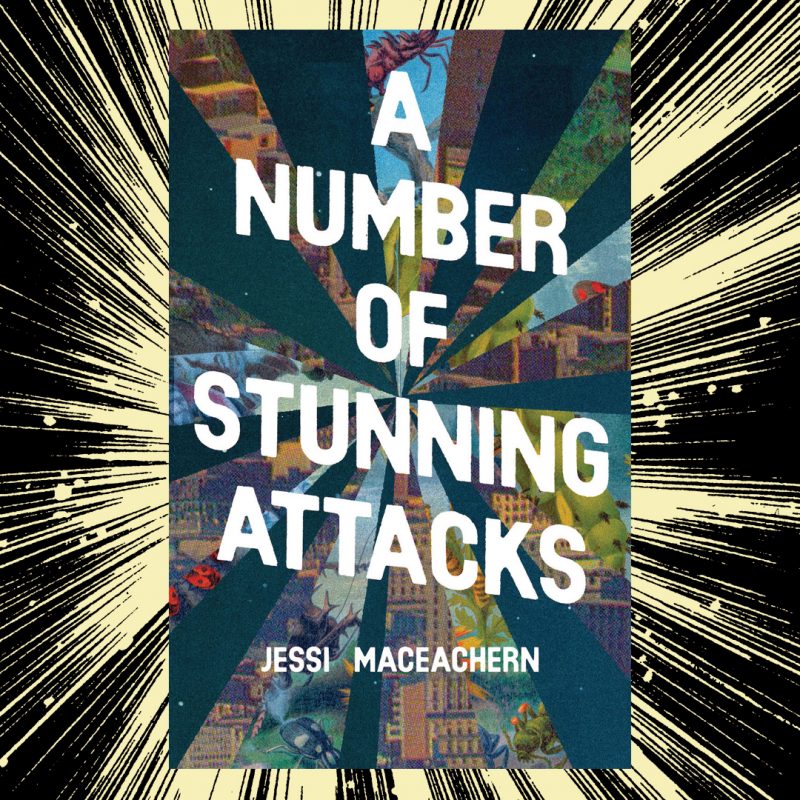USEREVIEW 047: Dreams to Have
In this traditional review, Ursula Pflug identifies Jessi MacEachern’s debut poetry collection, A Number of Stunning Attacks (Invisible Publishing, 2021), as a force that carries forward a legacy of feminist poetry.
ISBN 978-1-98878-465-6 | 120 pp | $18.95 CAD — BUY Here
#CAROUSELreviews
#USEREVIEWEDNESDAY
A few pages into the first section, ‘The Moat Around Her Home,’ Jessi MacEachern writes that she keeps a notebook labelled dreams to have. This is the sort of thing I would have written if I had thought of it. It’s also the sort of thing I would do and so, right at the start, I fell in love.
During COVID, like a lot of people, but especially writers, I read crates of my old notebooks. Far from feeling chagrin at the me I used to be, I brimmed with admiration, though there was chagrin as well; decades-old secrets and unfinished poems will do that to you. Reading MacEachern’s beautiful debut collection, I thought not just of how life, dreams and notebooks can be transformed, in deft hands, into scintillating images, hot and bright, arresting, sometimes ambiguous, often allusive, but also into a fierce discussion of the body, the spaces between us and others, and between us and ourselves. I thought of the French-language writers, their beautiful feminist provisioning that might feel dated to the young but to me time hasn’t diminished the power of Monique Wittig or Nicole Brossard, and MacEachern seems their heiress in her concerns with gender and language.
In her Guardian piece commemorating Wittig’s passing, Margaret Reynolds wrote that her works are “part fiction, part argument, part literary experiment …” telling us of “the strange beauty of some encampment, ritual or coupling. But every page is a call to arms: ‘The women affirming triumph that all action is overthrow.’ ”
Or at least, examination. To see is a revolutionary act. In the section ‘Notes on Moving,’ MacEachern writes:
Without her human limbs she was unable to carry
something other than herself
Is real
the day is like his straying
It grew quiet in the unconscious
without human lungs she discovers vocabulary
& grammar is something the senses know
people blot absence out
She eloquently tells us of the language of the body and the weight of the self (concerns throughout), but without the spray of bright impactful imagery here and elsewhere:
In the studio apartment
her ink-spattered palm
Gently tied in looping calculations & fragrant
yellow spatula leavings
His taut forearm flesh warmed the cool of her hand
his invisible body tormented the dismayed afternoon
It all weighs so heavily
MacEachern is Anglophone but lives and teaches in Montreal where, even to me, a German immigrant whose Toronto high school French is embarrassing if not useless, French feels almost accessible. When there I always wish I had greater fluency. In Aritha van Herk’s endorsement of Brossard’s Mauve Desert, she wrote, “Here is the night landscape of writing and its translation: their un / read erotics. Brossard words desire as a wasteland / paradise motel of language and courage, textualization and difference. This traduction / translation / transportation refuses the familiar erosions of the mind / body question and arouses an aesthetic of expression / perception.”
Our feminine organs discerned it
fireflies beat from the knot of his tie
Mauve Desert was published in 1987, exactly between the births of my two children. (Only now do I see the cover illustration of a car on a twilit desert highway was done by a close friend of that time, Tom Hunt. Sometimes our small world is even smaller in hindsight.) I was drawn, then, to feminist thought including the deconstruction of gender / language as a form of resistance against the heteronormative idealization of motherhood, unrealistic expectations included. Post childbirth, there were a lot of shoulds, suddenly. Couldn’t we at least in part find our own way, trusting our bodies and the new words for delight they gave birth to even as we gave birth to new humans? Somewhere along the way second wave feminism came under fire, often for legitimate reasons, but the remaking of language around desire and the body helped many women give voice to half-understood longings and misgivings; rereading parts of Mauve Desert and Wittig’s Les Guérillères I recognize there’s a kind of poetics I’ve missed. Seems to me MacEachern gets this.
I almost want the section, ‘Notes on Moving,’ to be a short story. Literary speculative fiction is the only genre I know of that can handle with subtlety and nuance the same kind of portal into consciousness (also the unconscious as MacEachern would have it) that poetry can. During the pandemic many people I know read poems. Prose drifted away, too hard to hold onto. A drift of it lies on the floor, abandoned among socks and blankets.
Duvet is continental drift on the floor below
Growing up, my German immigrant parents talked endlessly of the Symbolists, as they’d gone to school in Paris: Baudelaire, Verlaine, Rimbaud and, of the painters, always Cézanne. Where were the Canadians, the women? Visiting a friend whose teacher mother was a poet-in-disguise, I would read books left on the coffee table, including Susan Musgrave. A woman, Canadian, she spoke to this place and from this place. Breathless, I read every poem in Songs of the Sea-Witch, and wanted to be her, for words to mesh with life just this way, like fingers. One hand is life, the other is writing, they clasp and then, oddly, we become whole. During the pandemic I stuck to poetry by Canadian women: Susan Musgrave, Kim Goldberg, Lisa Richter, Neile Graham, my friend, the late Heather Spears, Erin Mouré, Nicole Brossard, Jessi MacEachern.
As a young woman, long ago, I attended a reading in Kingston where, without preamble, Mouré got on all fours and grunted at the audience, animal, all animal, and not ladylike or twee. What is a woman poet supposed to be like? Like this! Later we chatted and she said, “Well, I had to shake them up a bit, all the good manners, I’m telling them that’s not what poetry is.” I’m paraphrasing, of course. She signed a book for me; I don’t know where it is. I hope I gave it to a young aspiring poet. I still have Mauve Desert though, and now A Number of Stunning Attacks; they can sit beside each other on the Brilliant Montreal Women shelf with Mouré, when I find or replace Wanted Alive.
in the fertile darkness of grammar
we will destroy
the unconscious


